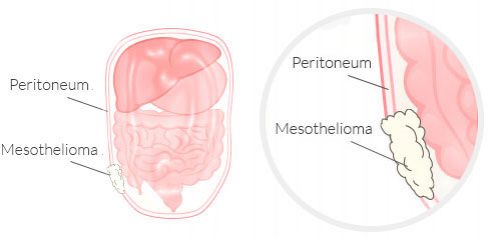Mesothelioma Surgery Options
Surgery is one of the leading treatment options for fighting mesothelioma cancer. Learn about the various surgical options available to you and what it takes to qualify for them.
Is Surgery the Best Treatment Option for Mesothelioma?
Surgery can be crucial to improving cancer prognosis — a doctor’s best estimate of survival and the chances of a healthy recovery. When it comes to mesothelioma, a one-size-fits-all approach does not apply. Specialists must create a personalized plan that is safe and effective, and the plan may not include surgery.
Curative surgery serves as the backbone of multimodal therapy, a combination of several therapies that provides patients the best hope for long-term survival and a better quality of life.
However, surgery isn’t always the ideal treatment choice for everyone, especially for patients not healthy enough to endure the toll of invasive procedures. Doctors at many top treatment centers can always provide other options for your unique situation.

Common Types of Surgeries for Mesothelioma
Surgical oncologists can offer a variety of techniques to remove cancerous tissue from the body. They can remove as much cancer growth as possible with the goal of curing the disease (curative surgery). Or they can perform a less invasive procedure that helps alleviate problematic symptoms (palliative surgery). Your doctor will decide whether curative or palliative surgery is best for you.
- Diagnostic Surgery
-
Minor procedure to diagnose cancer and get a better idea of how far it has spread (surgical staging).
- Curative Surgery
-
Removing as much cancer growth as possible with the goal of curing the disease.
- Palliative Surgery
-
A less invasive procedure that helps alleviate problematic symptoms.
Peritoneal Mesothelioma

To treat peritoneal mesothelioma, surgeons can perform an operation to remove as much tumor growth as possible from the abdomen. This is called cytoreductive surgery.
Cytoreductive surgery may involve as many as six peritonectomy procedures to remove all visible cancer. The techniques will vary based on the areas where cancer has spread.
One promising new treatment is hyperthermic intraperitoneal chemoperfusion (HIPEC), where doctors first remove peritoneal tumors with cytoreductive surgery and then bathe the abdomen in a heated chemotherapy solution.

Who is Eligible for Surgery?
In the earliest stages of mesothelioma, most patients experience only minor symptoms – and sometimes none at all. This is something that is unique to asbestos-related cancers, and it usually brings with it a difficult result: a late-stage diagnosis. Surgeons usually do not operate on late-stage patients.
Instead, they typically reserve potentially curative surgery for patients diagnosed in stages 1-3, the three earliest stages. The later the stage, the more diseased cells invade nearby tissues and organs, making it increasingly difficult for doctors to remove the tumors completely.
By stage 4, tumors have spread to the opposite lung or to distant parts of the body. That renders the cancer inoperable.
Even if surgery is an appropriate treatment option for mesothelioma, it’s possible that you still won’t qualify. Several other important factors help doctors determine if surgery is a promising treatment option for you.
Factors that Affect Your Eligibility
You will only qualify for surgery if you are healthy enough to undergo a major operation. If the spread of your cancer is too extensive, or you have a health condition that increases your risk of complications during or after surgery, your doctor will likely suggest a different treatment option.
- How far your cancer has progressed
- Your age
- Your overall health
Older patients and those with advanced cancer are usually not strong enough to endure aggressive surgery. It is unlikely that surgery would improve these patients’ outcomes, and the risk of complications and death would be too high.
Your overall health (aside from your mesothelioma diagnosis) will also influence decisions about treatment. Especially important are your heart and lung health. Because the average mesothelioma patient is 60 years old at diagnosis, many people diagnosed with the disease also have common chronic conditions of the elderly, such as chronic heart disease. Patients might also suffer from asbestosis or another serious lung disease related to smoking or the asbestos exposure that caused their mesothelioma.
These long-lasting medical conditions will likely exclude you from surgery. If your heart is not strong enough, the risk of death during or after surgery becomes much higher. If you have a lung condition that makes it difficult to breathe, an aggressive surgery will only make the problem worse. Before surgery, your doctor will likely perform a pulmonary function test to make sure your lungs will function well after the procedure.
If surgery does not appear to be the best option for your particular situation, your treatment team will choose an alternative plan of action. This may include chemotherapy, radiation therapy or an experimental treatment option.

Options for Ineligible Patients
Even if you don’t qualify for curative surgery, there are still a variety of treatments that can help relieve bothersome symptoms like pain, breathing problems and abdominal swelling.
Thoracentesis helps with pleural effusion, which is an excessive buildup of fluid in the pleural space, the area between the lungs and the thin lining that surrounds them. The procedure drains the fluid to reduce coughing and improve breathing.
If effusion returns, your doctor may perform a pleurodesis, in which talc or another substance permanently closes the pleural space.
Another alternative is an indwelling catheter, a tube your doctor puts in to drain the fluid continuously over the course of a few weeks at home. With this option, you don’t need to visit the doctor regularly to have the excess fluid removed.
With peritoneal mesothelioma, doctors can perform a surgery called abdominal paracentesis to drain fluid buildup in the abdomen and relieve the heavy, uncomfortable feeling it causes.
 Do You or a Loved One Have Mesothelioma?
Do You or a Loved One Have Mesothelioma?